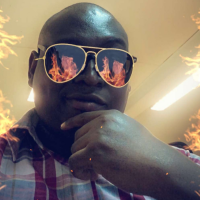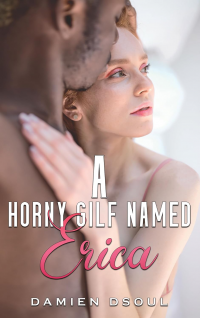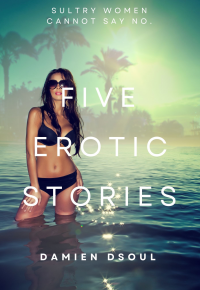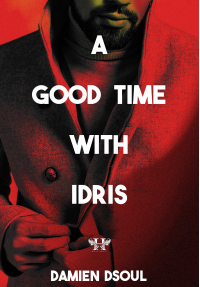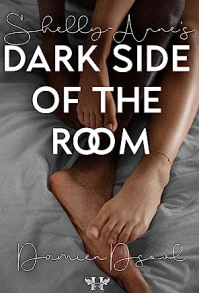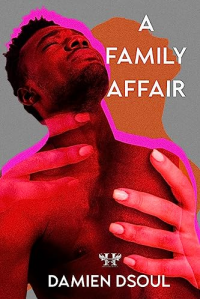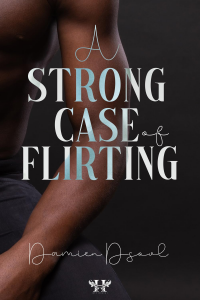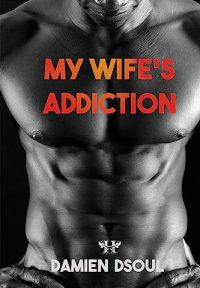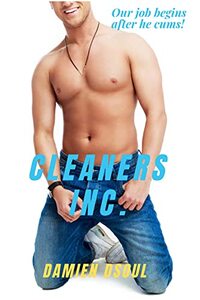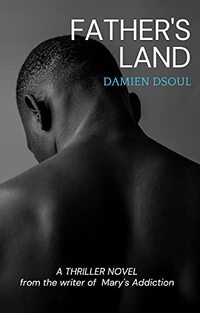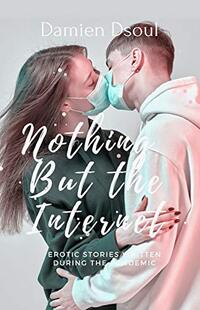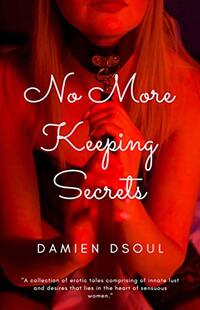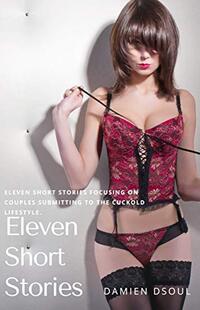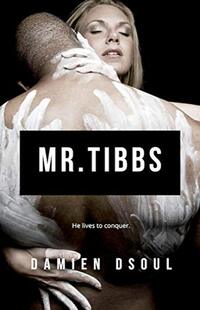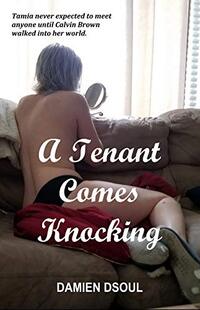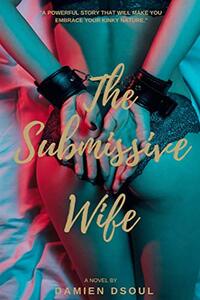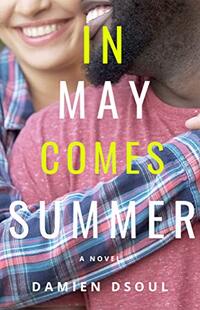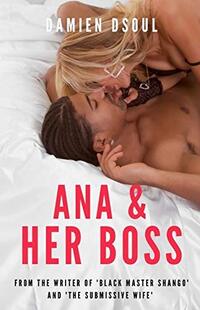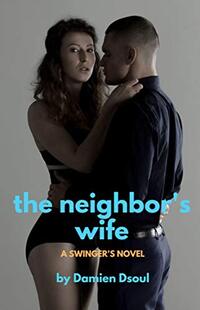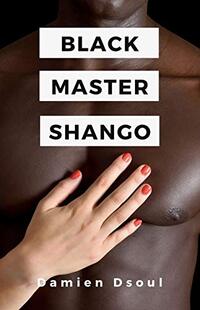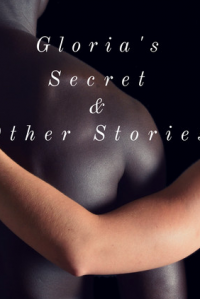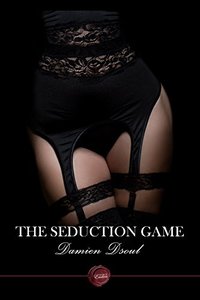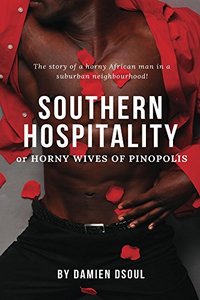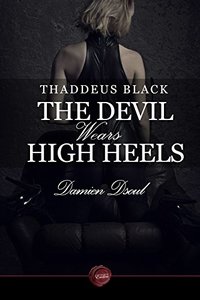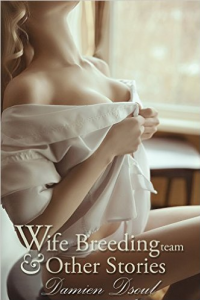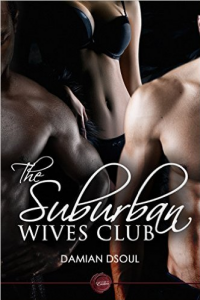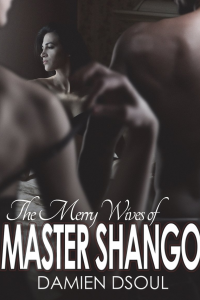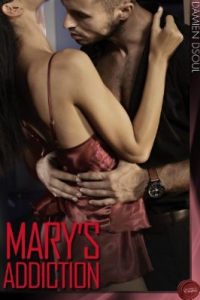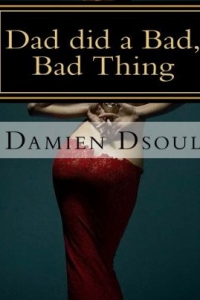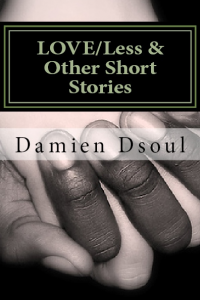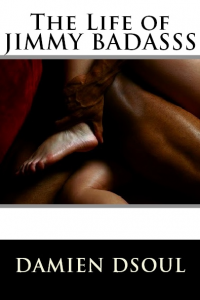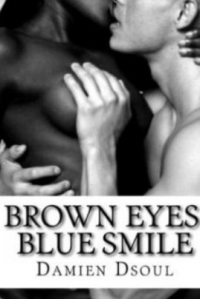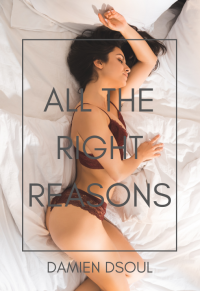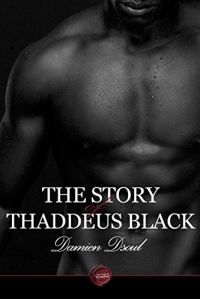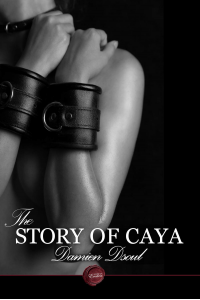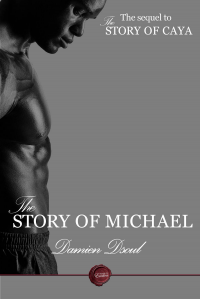Damien Dsoul Interview Published on: 17, Oct 2017
 Where did you grow up and how do you think it influenced your writing?
Where did you grow up and how do you think it influenced your writing?
I grew up in Port Harcourt, Nigeria. As a kid growing up I was always to myself. That especially came about when I began wearing glasses and I realised I could no longer play soccer like every other kid in my neighbourhood did. I was side-lined to watch from the stand instead. My father had been collecting books for some time and they were falling into neglect. I took it as a challenge to care of them, and I ended up reading them. The more I read, the more curious I became. But it wasn’t just books I read. I got hooked on movies and rock & roll music, and sort of became a cineaste before even I knew what they word meant. I was always attracted to the sense of story-telling and dialogue. Two aspects that have always been pertinent in my writing. The city was and still remains less of an influence in my writing. For me, my writing has always been a means of escaping the walls of my home, of my city, to a place where I can roam with ease.
What got you into writing? When did you start writing erotic romance and what is it about this genre that captured your interest?I always wanted to be a comic-book artist/painter. But I found the work tough, especially as I had nobody around to learn from, no Arts institute to go to. I later on switched to writing poetry. I still write poetry, but not as much as I used to before. Much of my writing stemmed from the unhappiness I witnessed from being an alone child. Poetry was a window for me to excoriate myself of whatever dark feelings that was inside me. Afterwards I realised I wanted more. So I switched from writing poetry to writing short stories. At the time I did it merely to rid myself of the demons in my head. But the more I wrote, the more I sort of went the distance without realising it. I wrote my first novel “The Rabbit’s Man” back in 2008, and it was more of a thriller, and it was gruelling writing it because up until that time, I’d never endeavoured to write something longer and was totally unprepared for the weight and burden the work had on me. I finished it and fell into a nervous breakdown. Everything I attempted writing after that felt dark. I got into erotic romance because it’s one genre where it doesn’t need to lead to a character or the protagonist dying.
Do you remember the first book you ever wrote? Was it also the first book you got published? If not, why didn't you publish it?I do remember my first book, though I don’t recall the title right now. It was a somewhat horror/gothic novel. I completely it but lost a majority of the manuscript when my computer crashed on me. My first novel was “The Rabbit’s Man”, but it wasn’t the first book I published. That distinction went to a collection of short stories called “The Artist at Work and Other Short Stories” which I published in July, 2010. The funny thing is I never made any money from it at all. But it felt good seeing it out in the market. It gave me the strength to say that I’ve burnt my bridges behind me and there was no going back anymore.
What do your parents think of your writing career? Has any of your family read your books? If so, what did they think?I can be honest when I say that my parents have never minded much about me being a writer. Writing isn’t really a profession majority of Nigerians would dare to take seriously; the market doesn’t exist here. That was why I knew my once chance of surviving as one was to take my writing abroad. Even then, it took a long time for me to acknowledge I was one. Neither of my family members have read any of my erotic books. Such genre of books aren’t the sort that the Nigerian society would deem as essential reading due to its sexual content. Though they do acknowledge that I am a writer and are somehow surprised that I’ve written so much compared to other established writers out there.
How long did it take you to write "The Devil Wears High Heels"? What do you think makes this book stand out from other erotic romances and mysteries?It took me less than four weeks. I had quit my job at the time and travelled to spend a year in the U.S. I was living in a one-room apartment in Washington D.C. I couldn’t go out and get a job, so my only means of earning a living was through my writing. I spent much of my days indoors in my room pounding at the keyboard of my computer. “The Devil Wears High Heels” is sort of my version of what a Sam Spades/Philip Marlowe-type character would feel like if he were black. The book was supposed to be a period piece and I must apologise that I got cold feet pulling that off. The Thaddeus Black character was my alternate take on the role played by Humphrey Bogart in ‘The Big Sleep’ and ‘The Maltese Falcon’. That he is a larger-than-life type of character who’s just as compelling to envision in a mystery novel as well an erotic one is one of the key things that makes the book appealing to me whenever I think about it.
Who is the inspiration behind the character Thaddeus Black? In a live action rendition of the movie, which actor would you want to play him?Thaddeus Black is a combination of Humphrey Bogart’s character in ‘The Big Sleep’ and Denzel Washington in ‘Devil Wears a Blue Dress’. He is a man’s man. Masculine, stubborn, obstinate type of guy, but has a loving heart. He loves women and isn’t ashamed of it. He’s the sort of character I seldom see in fiction novels anymore. I do hope to write more books on him because he’s got a compelling journey I feel more of my readers would love to know more about. If I were to see a live action movie done on this character, I would like for him to be played by the British actor Idris Elba. The man’s very charming and debonair that I feel would be an ideal match for the character. Also, he’s got Thaddeus Black’s type of build.
In your book "The Story of Thaddeus Black", your protagonist travels to Nigeria to search for his missing son. Are you from Nigeria yourself? Are any of the scenes from this book taken from experiences from your life?Yes, I am from Nigeria. None of it is taken from my experience, though that’s not to say that such actions of foreigners being kidnapped in African countries doesn’t occur. “The Story of Thaddeus Black” is the third episode after “The Story of Caya”, and “The Story of Michael”. I wanted to bring as much realism into the story, and take things in a deeper direction than ever before. “The Story of Thaddeus Black” is supposed to have a sequel, though I haven’t gotten down to putting it down yet.
How has your writing process evolved since your first book to now?There once was a time when I could shut down my thoughts of writing for a particular length of time, probably for a day or more, I could decide not to write anything. But those days are gone. I seldom go a day without wanting to write something, whether it be a story or part of an unfinished novel. My mind is always churning out scenarios and ideas of how best to be creative, to lure more readers into accepting that the contents of my erotic stories are as much a part of their desires as much as they’re unwilling to want to admit to them in public.
What inspired you to write "The Story of Caya"? What are your thoughts on the prevalence of sex trafficking stories such as these in countries like Nigeria, Ghana, Uganda, Thailand, India, etc?The sex trafficking stories did, though much of what ones hear of often a combination of myth with other outlandish stuff. But one important theme in much of my erotic books has always been about making my characters uncomfortable. Taking the female characters from their places of so-called ‘white privileges’ and putting them in settings that would inevitably lead to an outward and inner change in their lifestyle. With “The Story of Caya”, it involves taking someone from their stance of higher altitude in life and putting them in a somewhat primitive environment where they aren’t in control of what happens to them. Sex trafficking is a problem that often gets pushed to the background in contrast with other more prevalent problems afflicting the world out there. What makes it even worst is that this isn’t something solely subject to Third World countries but even in more civilized societies across Europe and over in North America, it still exists. I’m not expecting my book to shed a light in this aspect though, as “The Story of Caya” is light-hearted compared to the horror that exists out in the real world.
How do you usually think up new book plots? Do you have half-baked book ideas that you never got around to finishing? Can we hear some of them?I usually don’t write in terms of book plots. Although I have begun putting down notes regarding my characters of whichever book I’m working on. This wasn’t something I was apt to do before, as I’d simply sit behind my desk and feel the words tumble off my head. I don’t map out outlines for my stories or plan how they’re going to go. I’m more of a spontaneous writer. My main focus is always about how my characters interact with each other by having them get involved in some sort of societal culture class, just as in “The Devil Wears High Heels”, you have the street-wise Private Eye Thaddeus Black meeting with the rich window Constance Loftus. These are two characters who never would cross paths with each other, but due to providence and circumstance they do. As much as I want my readers to get surprised by where my stories go, I as well love it when I get surprised by the journeys my characters venture as I delve into the heart of the story.
Can you tell us an interesting story from when you were a newbie author? What are some common mistakes that new authors make when they first publish a book?When you’re a newbie, it’s such a tough ride getting to know all the intricacies and demands that’s involved with getting a book published. There’s a degree of naivety that befuddles most new authors into assuming that once a book gets writing and it gets up out there on sale that that’s about all the business involves. There’s a whole lot more that needs to be considered in terms of marketing and sales, and I will admit that I, too, have fallen prey to such. There’s a lot I wish I’d known when I began writing that I never did because there wasn’t anyone around to show me the ropes. And when I do think about it, it’s a good thing I never knew, or else I might have considered the mere thought of being a published author quite daunting.
Any advice for budding authors out there? According to you, what makes a really good romance book?Write with every emotion in your body: combine all your hate, love, fears, courage and even pain and pour it all into the page. Write with passion and let your passion be your guide. Without passion, you might as well quit. For me, what matters in a good romance book are thecharacters. How believable are the characters, and how honest is the writer with regards to how he fleshes out the story around his characters. Distinct characters with unique personality will always touch a reader’s heart than mere plotline mechanics.
Share Damien Dsoul's interview
Our prestigious member of AllAuthor Damien Dsoul is a fine author of dark romance and erotica. He was born and grew up in 1978 at Port Harcourt, the largest city in Rivers State, Nigeria. Damien always wanted to be a comic-book artist/painter but he found the work tough, as he had nobody around to learn from which is the reason he opted to be a writer. He wrote his first novel “The Rabbit’s Man” back in 2008 which went to a collection of short stories called “The Artist at Work and Other Short Stories” which was published in July 2010. His love life started at the age of 15 with a beautiful belle with whom he spends most of his time which took his interest in romance to one step ahead. His advice to other authors is, "Write with every emotion in your body: combine all your hate, love, fears, courage and even pain and pour it all into the page. Write with passion and let your passion be your guide. Without passion, you might as well quit."
